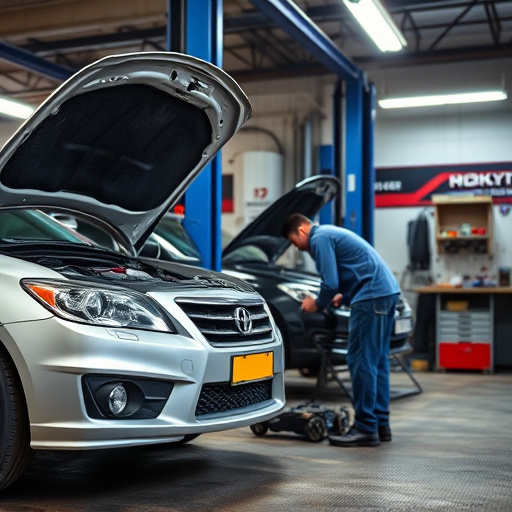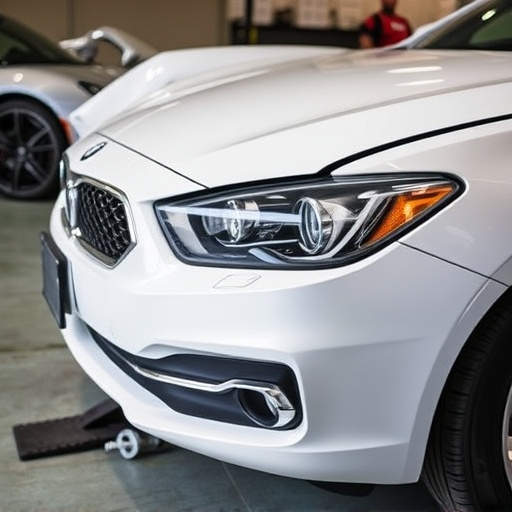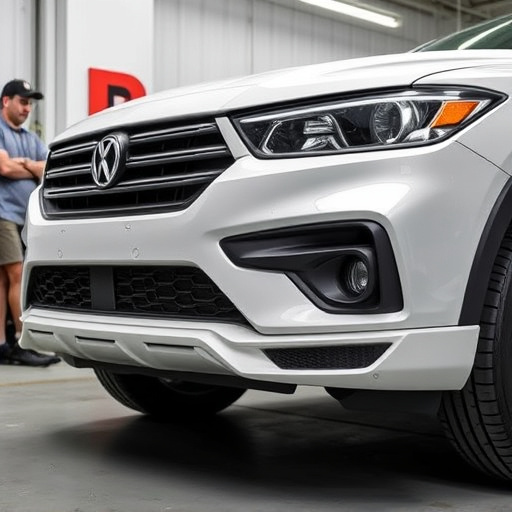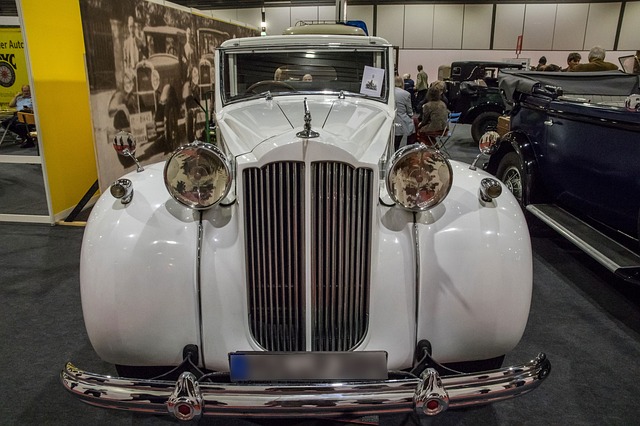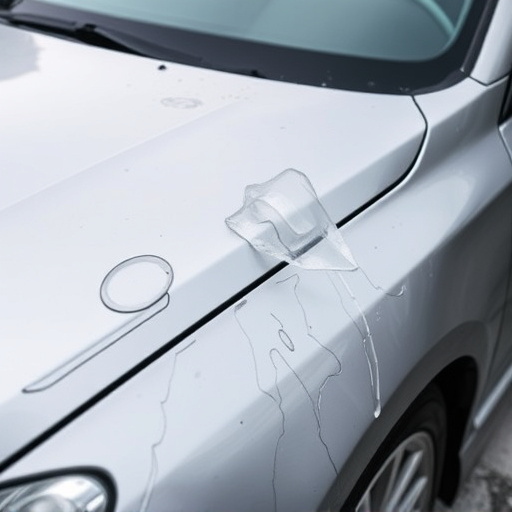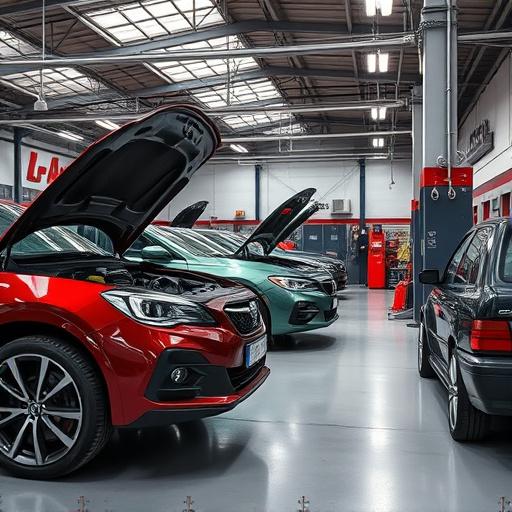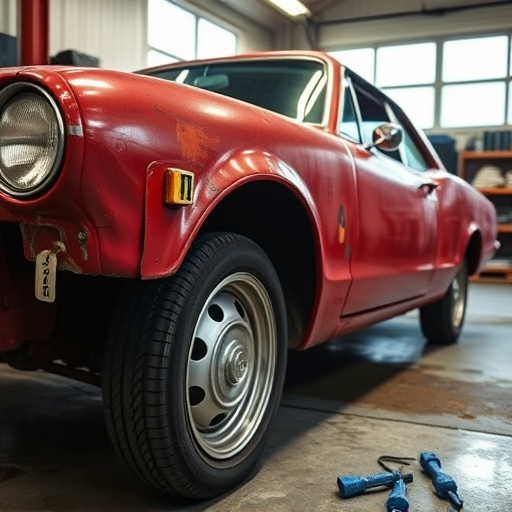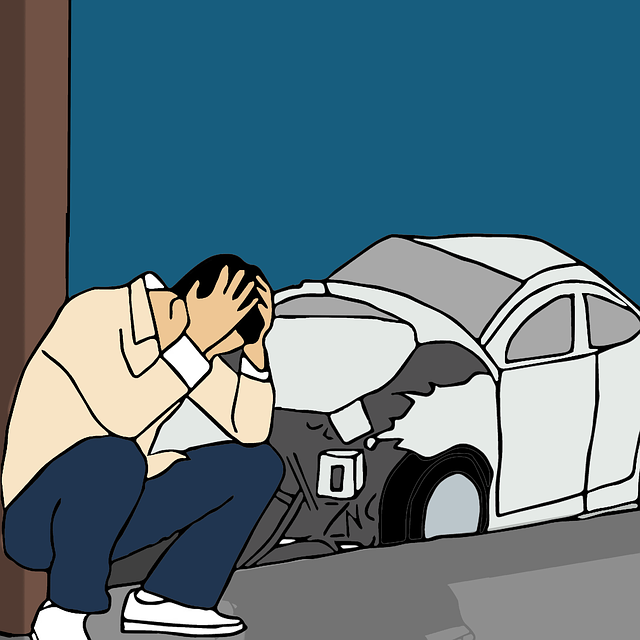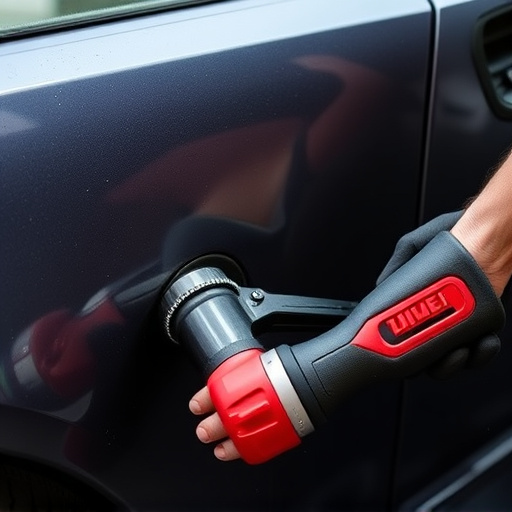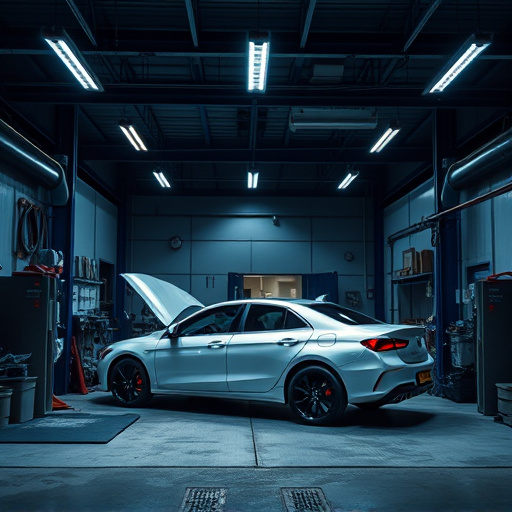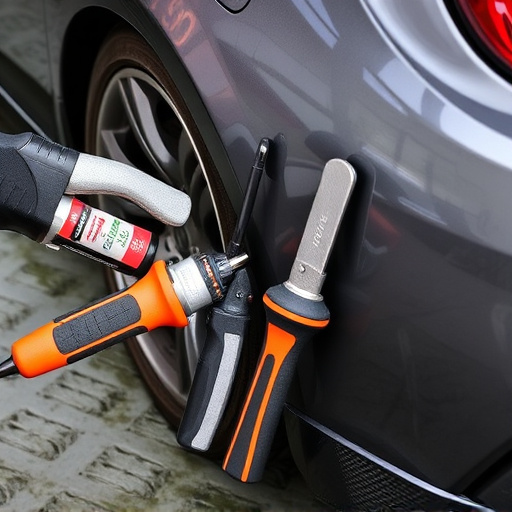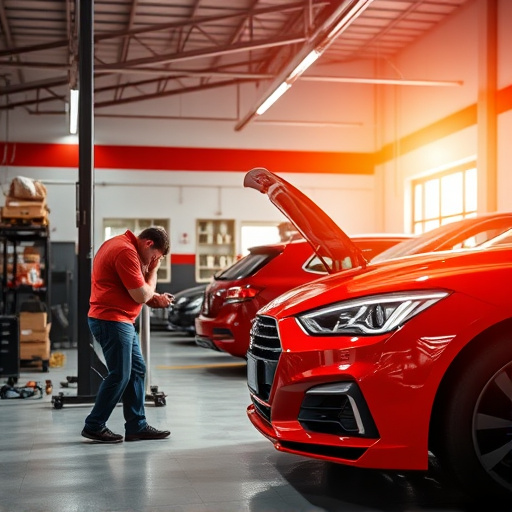Regular safety sensor recalibration is essential for maintaining and enhancing a vehicle's resale value, especially in luxury cars with advanced driver-assistance systems (ADAS). This process ensures optimal sensor performance, leading to improved road safety and buyer confidence. Following manufacturer guidelines and professional maintenance practices maximizes the vehicle's appeal and investment return in the competitive pre-owned car market.
Safety sensor recalibration is a critical aspect of vehicle maintenance that can significantly impact resale value. As autonomous driving features become increasingly integrated into modern vehicles, ensuring these sensors are functioning optimally is paramount. This article delves into the essential practice of safety sensor recalibration, exploring its effects on vehicle performance and resale value. We’ll discuss regular calibration’s role in maintaining peak efficiency and offer best practices to help buyers and sellers navigate this critical component.
- Understanding Safety Sensor Recalibration in Vehicles
- How Regular Recalibration Affects Resale Value
- Best Practices for Maintaining Optimal Resale Price
Understanding Safety Sensor Recalibration in Vehicles
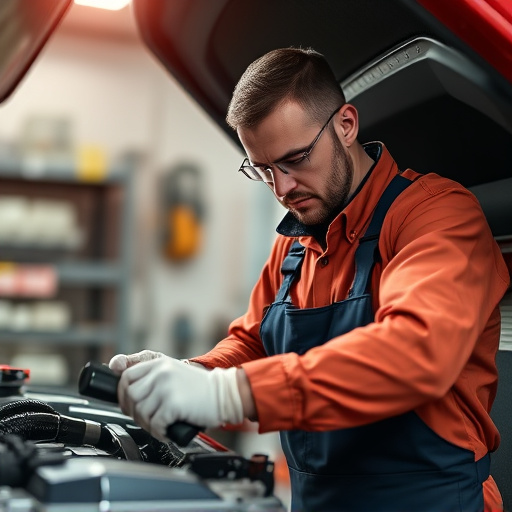
Safety sensor recalibration is a critical process that ensures the optimal performance of a vehicle’s safety systems. These sensors are an integral part of modern cars, playing a pivotal role in advanced driver-assistance systems (ADAS) and autonomous driving capabilities. Over time, as vehicles age or undergo certain repairs, these sensors may need adjustment to maintain their precision and effectiveness. This recalibration process involves fine-tuning the sensor’s sensitivity and response, ensuring they accurately detect potential hazards on the road.
Regular safety sensor recalibration is a vital aspect of vehicle maintenance, especially when considering long-term reliability and resale value. Many automotive repair services, including body shop services specializing in automotive body work, offer this as part of their routine servicing packages. By keeping these sensors calibrated, owners can rest assured that their vehicles are equipped to respond swiftly to critical situations, enhancing safety and peace of mind for drivers.
How Regular Recalibration Affects Resale Value
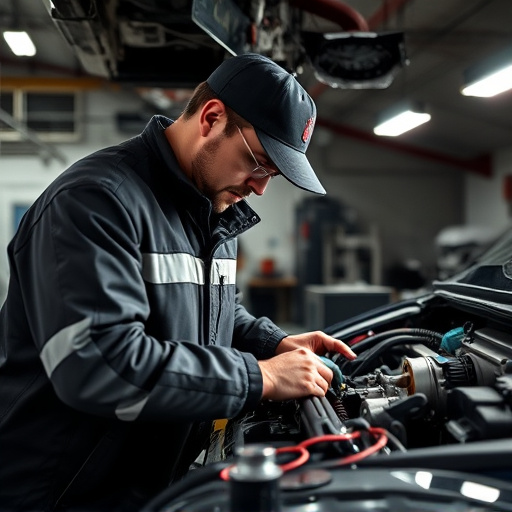
Regular safety sensor recalibration plays a significant role in maintaining and even enhancing a vehicle’s resale value. These sensors, responsible for critical safety features like collision avoidance and autonomous braking, require periodic recalibration to ensure their accuracy and reliability. Neglecting this maintenance can lead to decreased performance and potential malfunctions, which buyers often view as red flags. A well-maintained history, including up-to-date sensor recalibrations, makes a vehicle more attractive to prospective purchasers, especially in the competitive pre-owned car market.
Furthermore, regular recalibration can prevent issues that might require costly repairs or even necessitate a hail damage repair or complete car body repair. An auto body shop’s expertise in calibrating safety sensors ensures the vehicle meets manufacturer standards, preventing future problems and preserving its value. This proactive approach not only benefits owners but also fosters trust among buyers, knowing their investment is in good working order.
Best Practices for Maintaining Optimal Resale Price
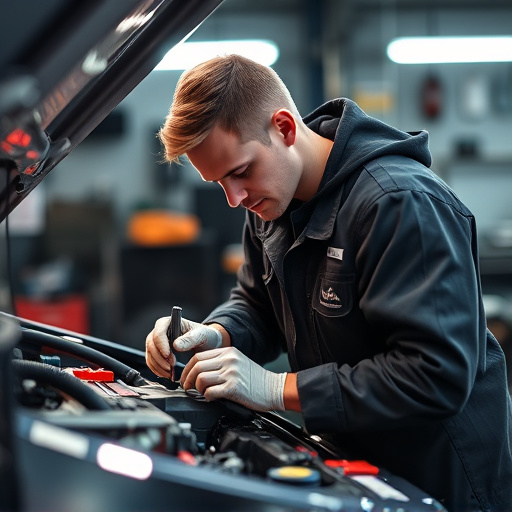
Maintaining a vehicle’s resale value is a critical aspect for car owners, especially those looking to sell their luxury vehicles in the future. One effective strategy to achieve this is implementing best practices for safety sensor recalibration as part of regular maintenance routines. Safety sensors, such as collision avoidance systems and parking aids, play a vital role in modern cars’ overall performance and resale appeal. Regular recalibration ensures these sensors function at peak efficiency, enhancing road safety and preserving the vehicle’s value.
Optimal recalibration involves adhering to manufacturer guidelines and seeking professional automotive repair services from reputable body shop services. This process includes calibrating sensors like lane departure warning systems, adaptive cruise control, and rearview cameras. By keeping these advanced driver-assistance systems (ADAS) up to date, owners can expect a smoother resale experience. Well-maintained safety features not only attract potential buyers but also contribute to the overall desirability of luxury vehicle repair, ensuring a higher return on investment when selling the car down the line.
Regular safety sensor recalibration is a key strategy for maximizing vehicle resale value. By ensuring these critical systems operate at peak performance, dealers and private sellers can command higher prices and foster buyer confidence. Implementing best practices for recalibration, as outlined in this article, will help maintain the integrity of safety sensors over time, ultimately contributing to a more substantial resale value.
